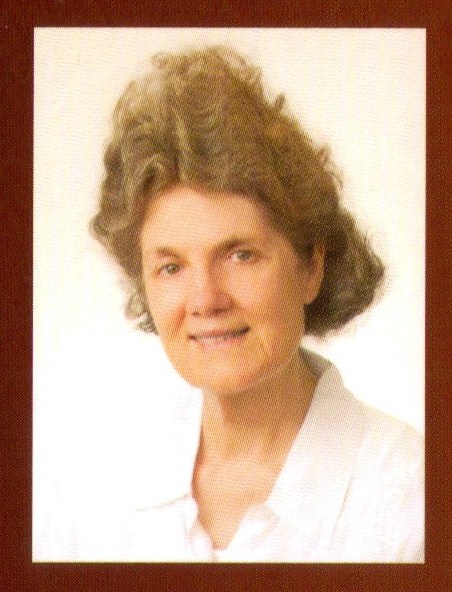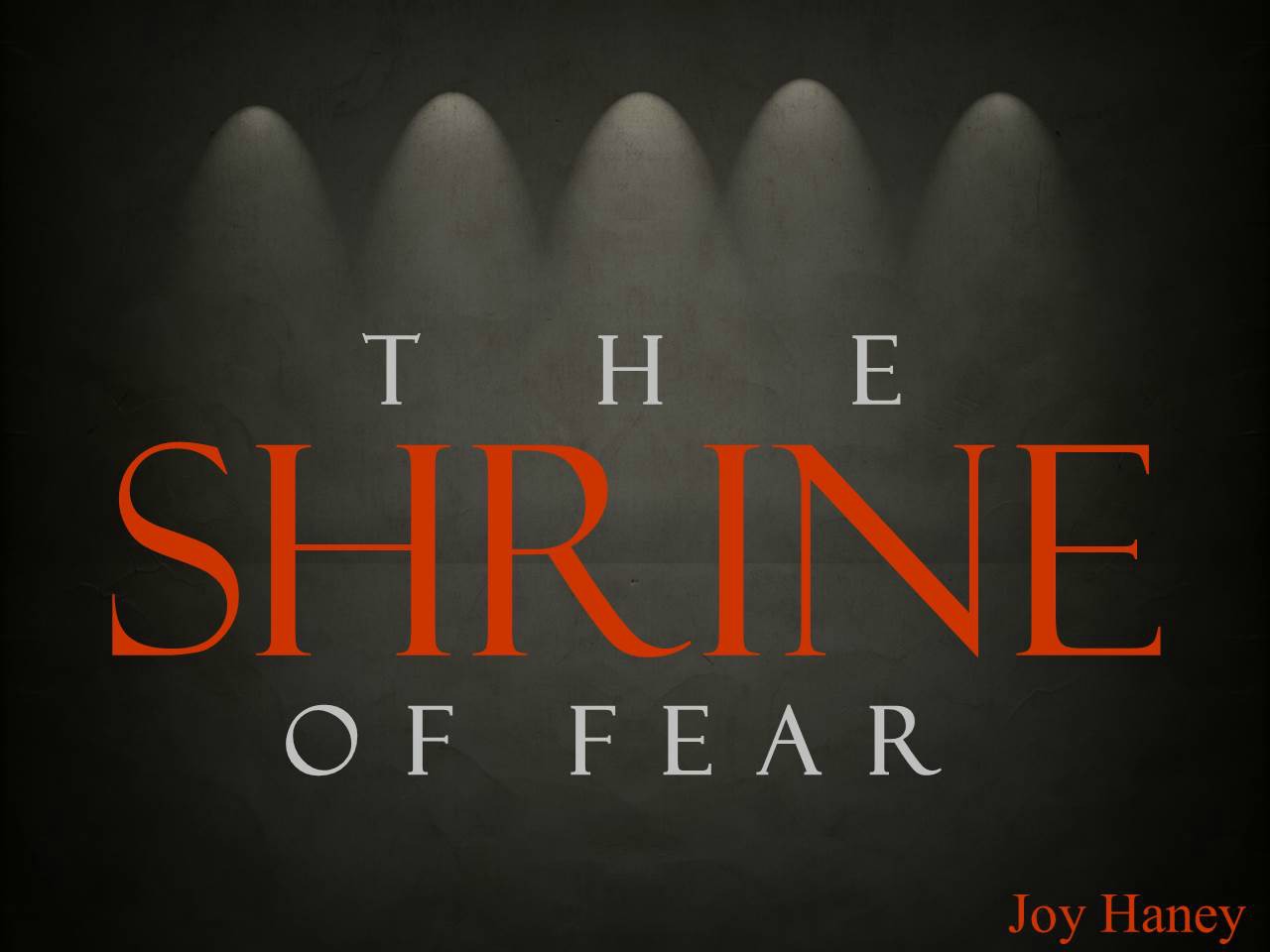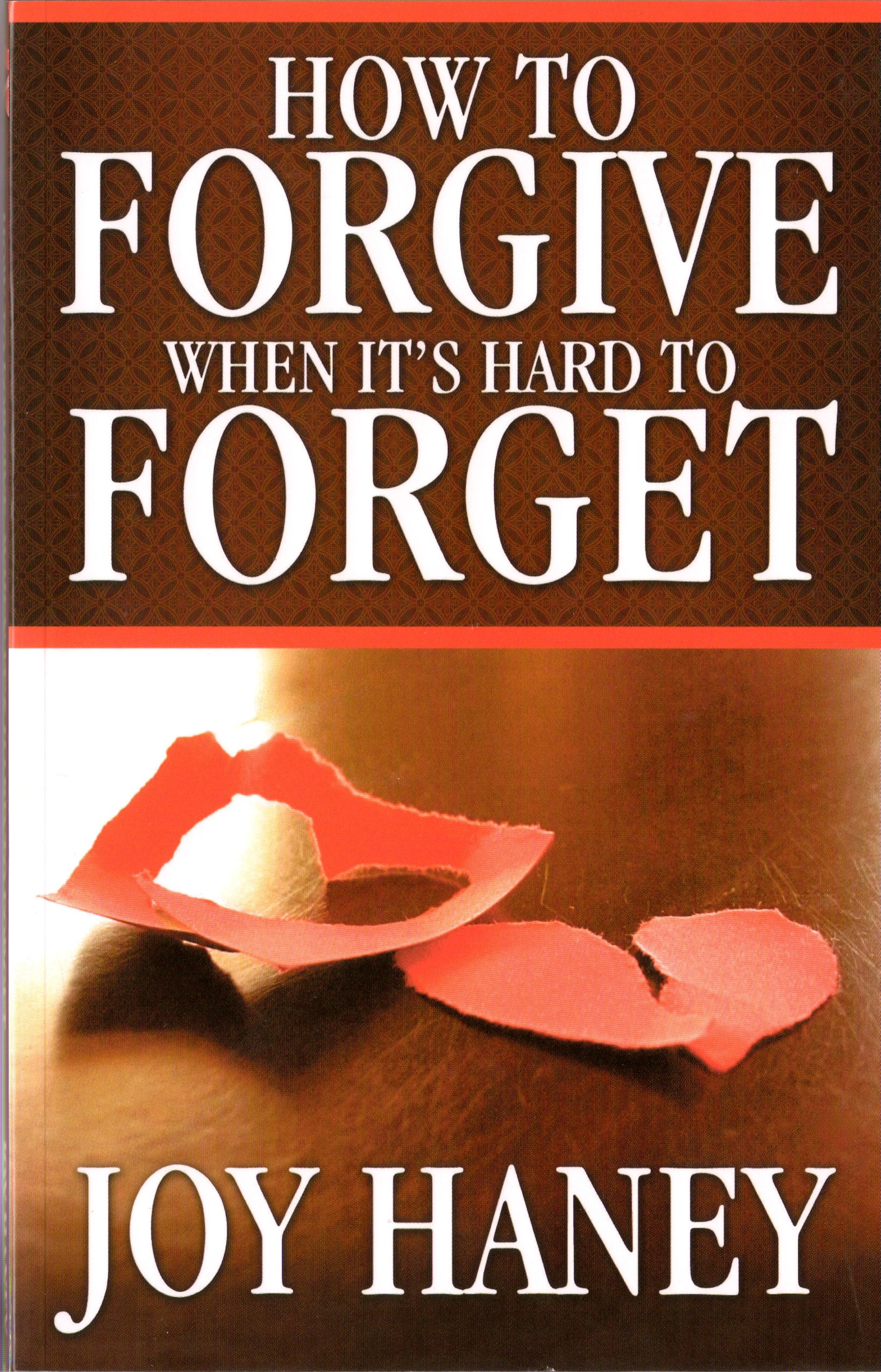
By Joy Haney
The Shrine of Fear that is erected out of the ashes is a very painful emotion marked by alarm. It characterizes dread, panic, terror, and anticipation of danger or continual hurt. This shrine takes up residence in the mind and crowds out hope and faith imprisoning the one who fears.
In 1972, two hunters on the island of Guam discovered a man hiding in the jungle whose story shocked the world. In 1944, a Japanese soldier fled to Guam when the tides of war began to change. Fearing for his life, he stayed hidden, coming out only at night. For twenty-eight years he lived on snails, shrimp, rats, frogs, nuts, and mangoes. When his clothes wore out he made burlap-like clothes from tree bark.
After being found by the two men, he said he knew the war was over because of the leaflets he found scattered throughout the jungle, but he was afraid that if he came out of his hiding place he would be killed. The hunters told him he was free, that his fears were groundless, and that he could go home.
How like the soldier so many are, living in self-imposed prisons, afraid to venture forth, always hiding, just existing instead of truly living. Because of a previous frightening experience they just dig in somewhere and never surface again.
Fear not only affects you; it affects others as well. A Los Angeles newspaper reported a story about a woman who was driving down the road when she looked up and saw a group of men running out of a bank with machine guns. She lost control of her car, struck five pedestrians, and slammed into two other cars, which hit two more people.
The tragedy of it all was the fact that her fears were groundless. The machine-gun-toting hold-up men were part of a Hollywood bank hold-up scene. The guns were not loaded and the bank was not even real. A bank-like front had been set up in front of a store.
Your cause for fear may be real, but nothing is worth losing control over your life as the woman did with her car. Things will happen which will hurt you and beckon fear to come and settle in your mind and consciousness. Keep steady; do not panic. You can win over fear; if you do not, fear will kill you.
In a sermon entitled, “Fear,” Rev. Clarence Macartney gives an illustration that proves this. A peasant man driving into a European city was stopped by an elderly woman asking for a ride. As they drove along, she told him she had cholera. When he became alarmed, she assured him that only ten people in the city would die from it. Then she gave him a dagger telling him that he could kill her with it if she was proven wrong.
When they entered the city it was discovered that more than a hundred had died. When the angry, fearful peasant drew the dagger to kill, she lifted her head and protested, “Wait, I killed only ten! Fear killed the rest!”
The legendary “Blood and Guts” General George Patton, who served his country in World War II and led his men to victory many times, often made the statement to his men: “Fear kills more people than death.”
There will always be the potential of fear in every situation, but it is intensified when there has been a burning or hurtful experience. You will never outgrow fear, but you can conquer fears. You do not have to bow down before its tyrannical rule. It is a cruel taskmaster.
An Indian fable is told that illustrates the principle that you will always have something to fear if you choose to worship at the Shrine of Fear. One day there was a mouse who was in great distress, filled with fear because of a cat. So the village witch doctor turned the mouse into a cat because he felt sorry for the poor little mouse. The only trouble was that when he became a cat he was fearful of the dog. So he turned him into a dog. The dog became afraid of a tiger so the magician turned him into a tiger and the tiger started fearing the hunter. Finally the magician said, “Be a mouse again, you have only the heart of a mouse and I cannot help you.”
It is not enough to change locations, clothes, jobs, or hairstyles. There must be change of heart. One must realize that it is not what you have lost that is important, it is what you have left that counts. The fear of losing again or being burnt again will keep your eyes on yesterday, but yesterday is only ashes.
The story of Harold Russell who rose from the ash heap of life to success was so inspirational that it was made into a motion picture called The Best Years of Our Life. Millions viewed it and were challenged to never give up even when it looked like all was lost.
While Harold was serving in World War II, one day he woke up in a hospital bed with the greatest shock of his life: both of his hands were gone. He was filled with dread and terror when he thought of life with no hands. He really did not care whether he lived or died, until one day Charlie McGonegal, who had lost both his hands in World War I came to visit him.
Charlie told him that in order to make it he must first conquer himself and get rid of his bitterness and fear. He said something that struck a chord in Russell’s mind. “You are not crippled; you are merely handicapped.” The more he thought about it the more curious he became. He went to the library and looked up the two words. Crippled means “disabled, incapable of proper or effective action.” Handicapped means “any disadvantage or hindrance making success or undertaking more difficult.”
This jarred his thinking. As he had many hours to recuperate, he decided to stop thinking on what he had lost and concentrate on what he had left. As a result of the handicap and his new way of thinking, he found a new way of life. He decided to help others with their fears and regain hope. He became an inspiration to many as an author, radio personality, and speaker.
In one of his books he wrote these words: “I don’t think I’d ever willingly lose my hands, if I had it to do all over again. But having lost them, I feel perhaps I have gained many fine things I might never have had with them. The important thing is that this seeming disaster has brought me a priceless wealth of the spirit that I am sure I could not have possessed otherwise. I have enjoyed a life that has had meaning and depth it never had before. It is not what you have lost, but what you have left that counts. Too many of us squander precious energy, time, and courage dreaming of things that were and never can be again, instead of dedicating ourselves to realities and the heavy tasks of today.
“People marvel at the things I can do with my hooks. But the thing I never cease to marvel at is that I was able to meet the challenge of utter disaster and master it . . . that the human soul, beaten down, overwhelmed, faced by complete failure and ruin, can still rise up against unbearable odds and triumph.”
Helen Keller, who was blind, said, “I thank God for my handicaps, for through them I have found myself, my work, and my God.”
You do not always choose what happens to you, but if something painful does happen to you, you can choose as Harold Russell and Helen Keller did. Choose whether you will be mentally and emotionally crippled — incapable of effective action; or handicapped — a disadvantage that makes success more difficult. You can overcome your fears, but you have to stop bowing down to the Shrine of Fear and letting it dominate your thinking.
Life will have its pain and pockets of fear. One cannot walk on mountain peaks. There will be rivers to cross, valleys to walk through, treacherous routes and obstacles along the way. What they do to you determines how much fight you have in you. You can become stronger because of life’s experiences, but you must will it to be.
It was Seneca, the writer of old, who said, “Just as so many rivers, so many showers of rain from above, so many medicinal springs do not alter the taste of the sea, so the pressure of adversity does not affect the mind of the brave man. For it maintains its balance, and over all that happens, it throws its own complexion, because it is more powerful than external circumstances.”
God can give you inner peace and take away your fear so you can stand strong in the time of fearful circumstances. In 2 Timothy 1:7, Paul gives hope. “For God hath not given us a spirit of fear; but of power, and of love, and of a sound mind.” Fear is a spirit, but that spirit can be dominated by God’s power. You do not have to get rid of fear by yourself. Your will is not always strong enough, but with God all things are possible. He makes up the difference.
Do not try to face your difficulties and fears alone. It was Francis Bacon who said, “I can remember the days when people talked about the conflict between science and religion. But no more. The newest of all sciences — psychiatry — is teaching what Jesus taught. Why? Because psychiatrists realize that prayer and a strong religious faith will banish the worries, the anxieties, the strains, and fears that cause more than half of all our ills. They know, as one of their leaders, Dr. A.A. Brill, said: ‘Anyone who is truly religious does not develop a neurosis.’ ”
Nearing the end of his life Henry Ford was asked if he ever worried or feared. He replied, “No, I believe God is managing affairs and that He doesn’t need any advice from me. With God in charge, I believe that everything will work out for the best in the end. So what is there to worry about?”
He could say that in his older years. He had learned to conquer his fears and worries by trusting in God. The brave man is not he who feels no fear, but he who subdues his fear. One who will go forward in the face of danger knowing that God is with him.
The story is often told of David facing Goliath on the battlefield during the war between the Philistines and the Israelites. All the Israelite soldiers were shaking in their boots, afraid to face Goliath. When David walked into camp that day, little did he know what he was going to face. His confidence in God took precedence over his fear. He faced the very thing that everyone else was afraid of, because he chose not to stand in his own might, but in the might of the Lord.
His faith canceled his fear. When he started down the mountain toward the bellowing nine-foot Goliath, his mind was not on the height nor the threats coming from the giant’s mouth. He was filled with excitement because he knew in whom he believed. When Goliath challenged David and his God, David knew that the battle was already won. The battle ceased to be his; it now was between God and Goliath.
That little stone that was flung from that slingshot probably was carried by either the Spirit of the Lord or an angel, a messenger from God. Whichever way it happened, David proved that trust in God took away fear. He did not say, “I am coming to you in my power,” but he said, “I come to you in the name of the Lord.”
This day determine in your heart that you will venture forth upon an excursion of faith. This trial will not always be. You do not have to worship at this shrine. It will not set you free; it will imprison you. “It is cynicism and fear that freeze life; it is faith that thaws it out, releases it, sets it free” (Harry Emerson Fosdick).
Freedom from fear can be yours; you must learn to rule your fears through God so they will not rule you. What is the motivating or ruling factor in your life — fear or faith? Whatever motivates you will influence your performance.
There is an old fable about a dog that boasted of his ability as a runner. One day he chased a rabbit and failed to catch it. The other dogs ridiculed him on account of his previous boasting. His reply was, “You must remember that the rabbit was running for his life, while I was only running for my dinner.” It does make a difference if we are doing the chasing or we are being chased.
This day determine to be motivated or ruled by faith. Get out of the ash pile and stop bowing down to the Shrine of Fear by consciously making an effort to do so, just as Harold Russell, Helen Keller, and David did. Let us chase fear out of our life instead of fear dogging our footsteps. Say, as David said, “Fear, I come to you in the name of the Lord, and tell you to get out of my mind.” Stand firm upon the powerful Word of God and implant it deeply in your mind and you are on your way to victory.
This article “The Shrine of Fear” was taken from How to Forgive When it’s Hard to Forget by Joy Haney and may be used for study & research purposes only.




1 thought on “The Shrine of Fear (Entire Article)”
Comments are closed.